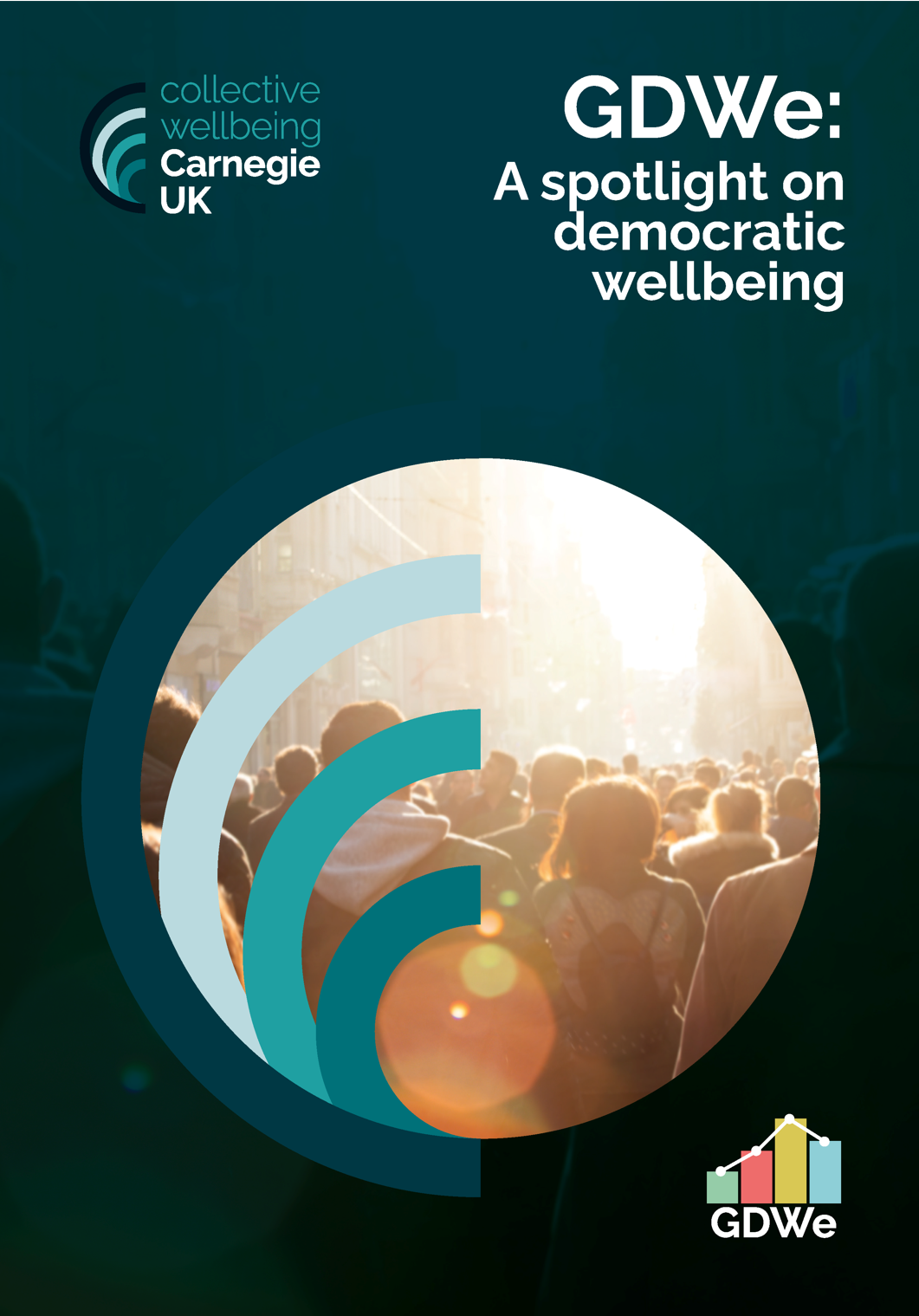Democratic wellbeing: a new report from Carnegie UK
Posted on 21 Feb 2022 Categories: New democratic models, Citizens' Assemblies, Deliberative democracy, New economic models, News, Reports, Wellbeing
by Rethinking Poverty

Carnegie UK published their report GDWe: A spotlight on democratic wellbeing last month. Gross Domestic Wellbeing (GDWe) is an alternative measure of social progress to the dominant measure GDP, as set out in their previous report. The organisation advocates for collective wellbeing, which is realised when everyone has what they need to live well, individually and together. A pillar of GDWe, and the focus of the report, is democratic wellbeing.
The report states:
‘when we talk about measuring democratic wellbeing we are referring to the extent to which we all – collectively – have a voice in decisions that affect us. Wellbeing cannot be ‘done to’ people, it has to be done by and with them.’
Using YouGov polling, Carnegie UK measured the temperature of democratic wellbeing across a sample of 1453 adults in England. They were asked about the perception of UK democracy, trust in society, participatory democracy and online behaviours.
The report found a loss of trust in the UK Government, as well as ‘a clear split in how people felt democracy in the UK is working (45% positive versus 41% negative)’. When asked about the extent to which they feel involved in local decision making, 89% of people reported that they were not involved at all or were only slightly involved. Participants were also asked which measures should be used to capture whether as a society we are progressing, and identified GDWe as the top measure, ‘showing its potential as an alternative measure of social progress’.
It argues that ‘given the extent of the collapse in wellbeing generally, and in trust in government and politicians specifically, we need more timely statistics on collective wellbeing’. It also states that ‘Democratic wellbeing is a vital part of collective wellbeing’ and there is ‘an urgent need to increase public trust in institutions, as well as knowledge about the ways that citizens can increase their voice in decisionmaking’.
The report reiterates Carnegie UK’s ‘call for the UK Government to explore fully composite indices like GDWe’:
‘Such transparent information, based on a public conversation about what should be included in GDWe, could contribute to collective wellbeing by increasing public trust and enabling citizens to hold government to account.’
Read the full report here.
Posted on 21 Feb 2022 Categories: New democratic models, Citizens' Assemblies, Deliberative democracy, New economic models, News, Reports, Wellbeing
